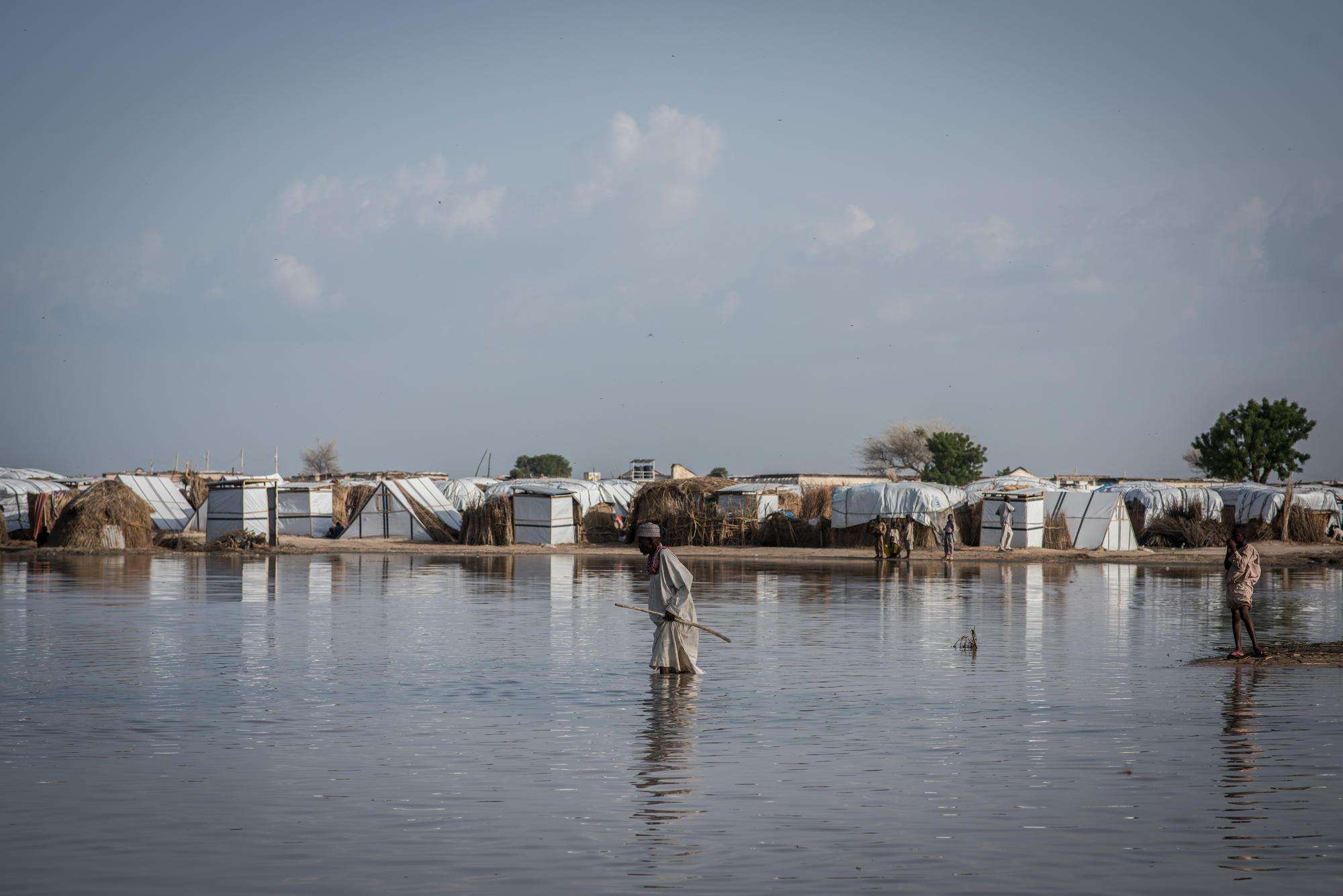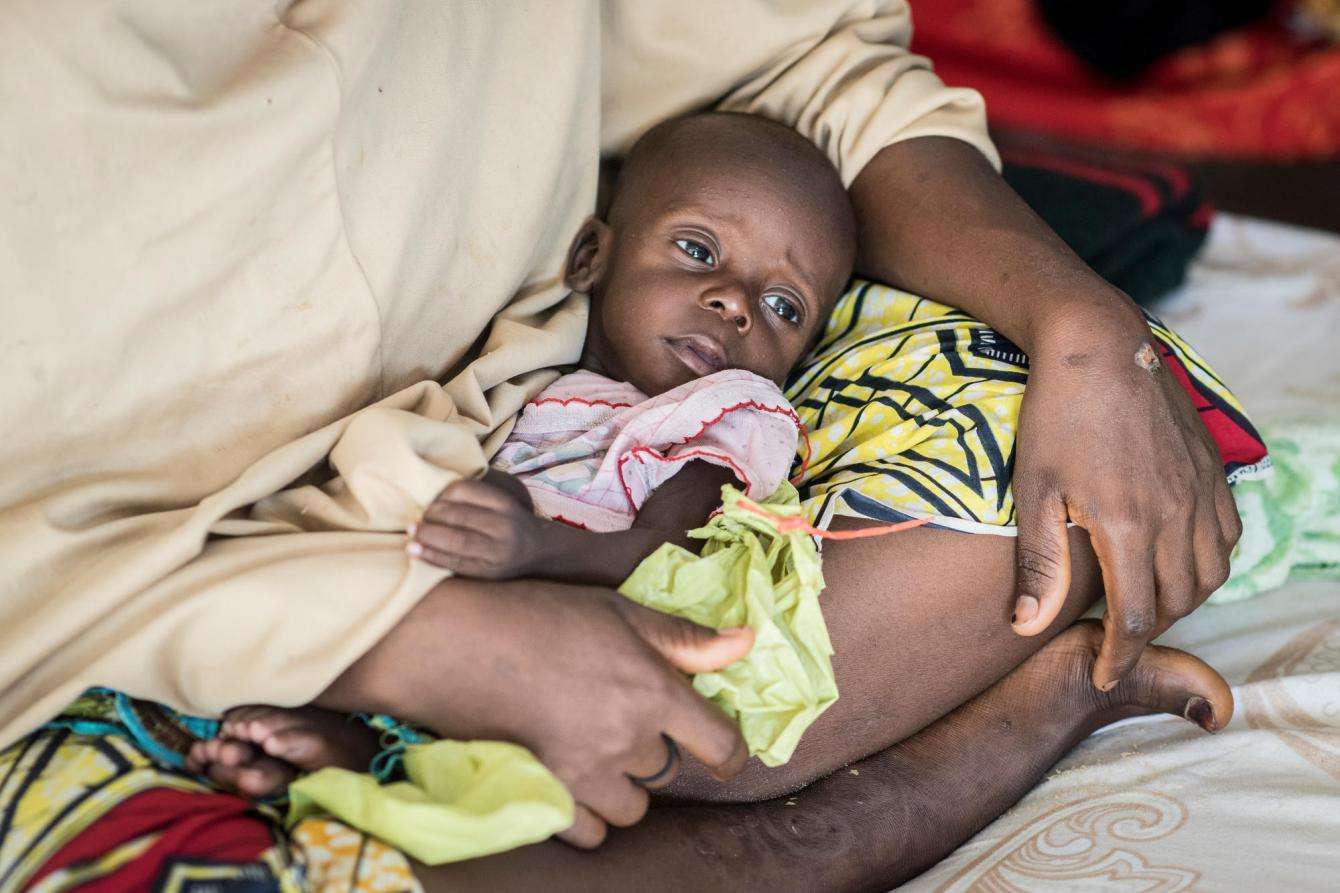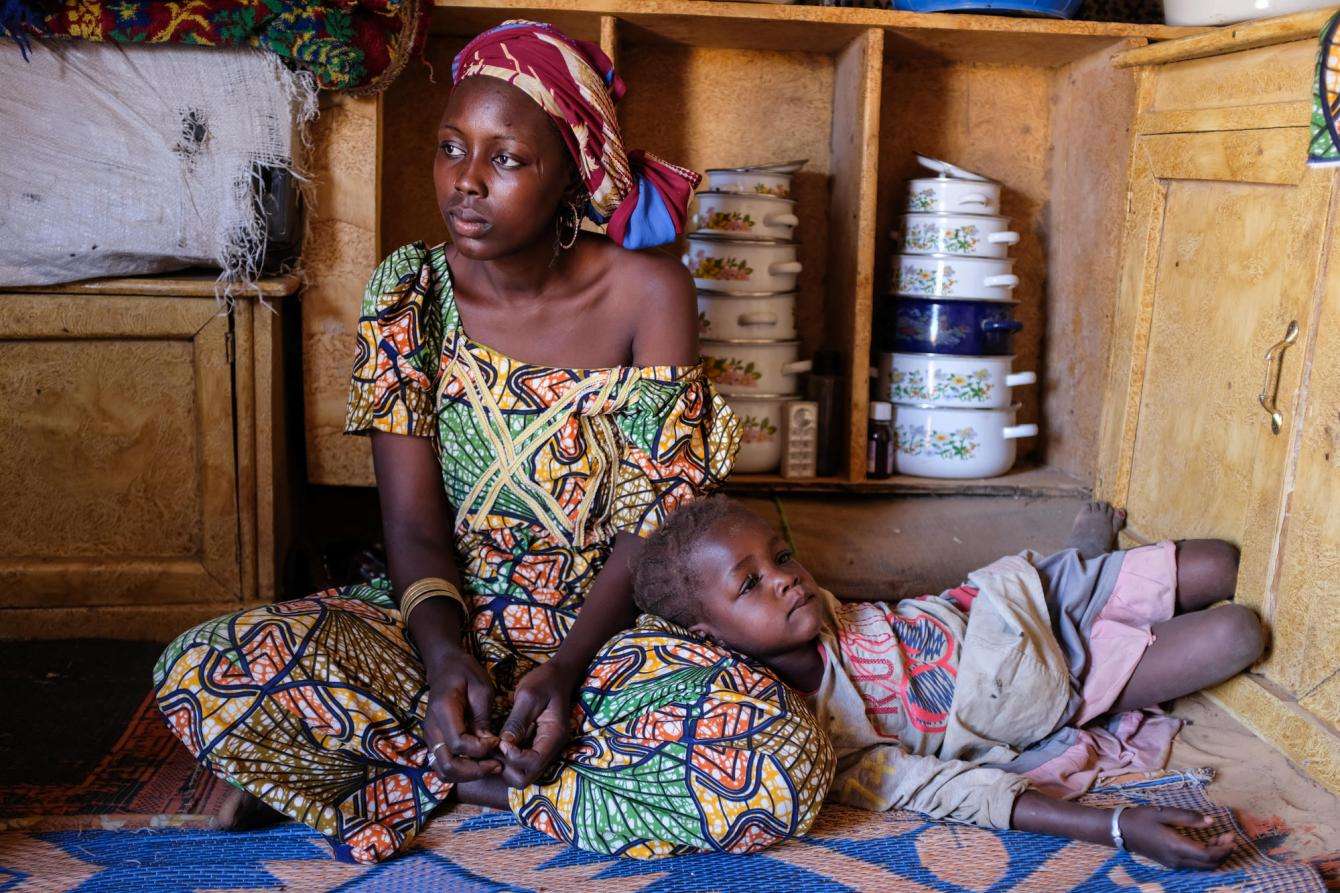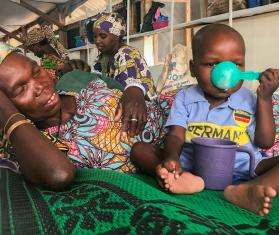In Cameroon, more than 1.5 million people (or one in three) are "food insecure" to the point of crisis or emergency. The situation in the departments of Logone and Chari, in the far north of the country, is particularly alarming: 10.9 percent of children suffer from global acute malnutrition and 2 percent from severe acute malnutrition. In 2017, we admitted 2,065 children to our inpatient therapeutic feeding center in Kousseri, and 4,496 to our outpatient feeding programs in Kousseri and Mora.
In Niger, we support five ambulatory therapeutic feeding centers, as well as the inpatient therapeutic feeding center (ITFC), pediatric and general medicine departments in Mainé-Soroa district hospital. We also support Nguigmi district hospital’s ITFC, as well as its pediatric and obstetric wards.
Pediatrics and maternal health
A total of 11,842 children under five were admitted for care at MSF facilities across northeast Nigeria’s Borno and Yobe states in 2017, and over 9,000 deliveries were assisted by MSF staff–almost double the total number of the previous year. Our teams also vaccinated children against measles, pneumococcal pneumonia, and other preventable diseases.
We provide emergency pediatric care, mental health support, and nutritional programs for malnourished children at permanent health facilities in Rann, Ngala, Monguno in Borno, and Damaturu in Yobe.
In the far north region of Cameroon, we have been providing specialized nutritional and pediatric care at Mora district hospital since August 2015. We also provide obstetric care, nutritional care, and inpatient pediatric care at the district hospital in Kousseri, where 3,451 children were admitted in 2017–almost a quarter more than in 2016.
In Chad, we supported the Ministry of Health in the pediatric, nutrition, and maternity wards of the regional hospital in Bol from November 2015 to June 2018, when we gradually started handing over our activities to local health authorities.
In Niger, we support the mother and child health center in Diffa and Mainé-Soroa district hospital and have set up community “listening spaces” in villages around Diffa, in order to provide advice and medical assistance for sexual and reproductive health issues. This is just one example of the community approach we take throughout the region, using mobile clinics and involving the community as much as possible.
We also conduct malaria prevention activities in the Lake Chad region, including seasonal malaria chemoprevention.
Responding to disease outbreaks
Outbreaks of disease are a major concern, as sites are overcrowded, shelters are inadequate, and the water and sanitation infrastructure is insufficient for the large numbers of people living in the sites.
In Niger, a hepatitis E outbreak was declared by the Ministry of Health on April 19, 2017. In response, we have been helping to train health staff and community workers in the Diffa area and support communities, health centers and hospitals with the early detection of cases, referrals to health facilities and case management.
At the water points located in MSF’s areas of response, the teams conduct water and sanitation activities, and our teams conduct awareness-raising campaigns about preventing the spread of disease among displaced people and refugees, both in camps and in the villages of the districts where we work.
From August to December 2017, we responded to a cholera outbreak in Nigeria’s Maiduguri, Monguno, and Mafa. Our teams treated 3,942 patients and operated four cholera treatment centers and two oral rehydration points across the Borno state. We also constructed water and sanitation facilities to help curb the spread of disease. In 2018, we have responded to outbreaks of cholera in Borno, Yobe, and Adamawa states. In 2019, we continued to respond to an ongoing cholera outbreak in the North and Far North regions of Cameroon.
The onset of the rainy season poses higher risks of outbreaks such as cholera and malaria. The water and sanitation infrastructure must be strengthened in order to increase access to safe drinking water to prevent spread of water-borne diseases.
We monitor potential disease outbreaks in all the areas where we work, run vaccination campaigns and undertake water and sanitation activities in hospitals and communities. This includes the construction of waste management sites, the construction or rehabilitation of latrines and the chlorination of water points, as well as the provision of safe drinking water.
Our COVID-19 activities in the area
COVID-19 is spreading across the Lake Chad Basin. The major risk of COVID-19 in Africa will probably not be the virus itself, but its indirect consequences, such as the limited response to malaria, diarrhea, respiratory infections, and malnutrition, as well as other diseases and medical conditions.
Since the beginning of the COVID-19 outbreak, we have been concerned about its effects on routine vaccination activities and campaigns because of restrictions on movements and gatherings, and a lack of protective equipment. Misinformation about the virus has led communities to fear becoming infected as a result of visiting health centers.
MSF teams have adapted our ongoing projects, while supporting national responses to COVID-19. In places where the needs are the greatest, we have opened or contributed to the creation of COVID-19 treatment centers.
We are also supporting many existing health facilities by helping them to recruit and train medical staff, establish isolation units and triage systems, and strengthen hygiene and prevention measures. In facilities across Niger, Chad, and Cameroon, we have installed oxygen generators to help treat severe cases.
Mental heath care
Mental health care is an increasingly significant part of MSF’s work in the Lake Chad region, given the psychological suffering of the host, refugee, and internally displaced populations.
In Niger in 2018, we introduced a new community approach, with mental health agents at camps, schools, water points, and other places, in order to reinforce the identification of people in need of psychological support. In 2017, we provided more than 15,700 mental health consultations across the Diffa region. The main symptoms detected by the team were post-traumatic stress disorder (PTSD), anxiety, and depression.
In Chad, psychological support has been offered at all our mobile clinics, where staff reported that deep psychological traumas were quite common. This prompted the launch of a specific mental health program to provide psychological consultations and follow-up.
In Cameroon, we provide mental health care in the health centers of Mora and Kousseri, and in the surgical department in Maroua regional hospital.
In northeast Nigeria, we conducted mental health activities in Pulka and in Gwoza, and provided mental health care for survivors of sexual and gender-based violence.
In 2021, MSF made the hard decision to close our medical activities in Pulka and Gwoza due to security developments in the area and accrued threats to humanitarian workers.










